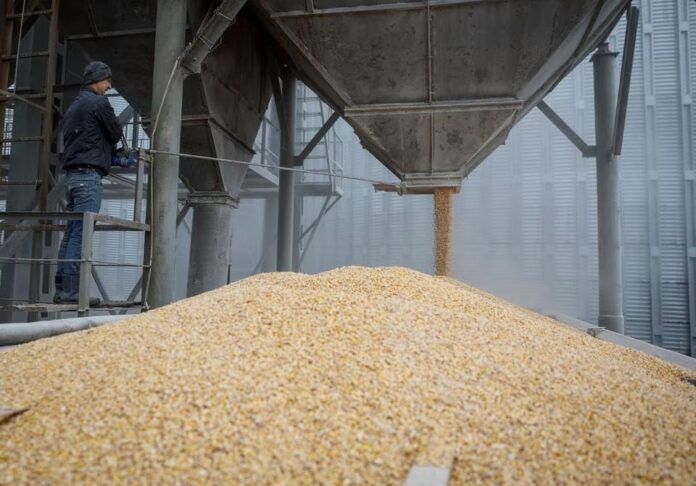Ukrainian grain has successfully transited through Romania since the country introduced export licences under its grain export plan to help protect farmers last autumn, Adrian Pintea, state secretary in the Agriculture Ministry, said on Thursday, according to Euractiv.
After being hit by the mass imports of cheap Ukrainian grain made possible by the opening of the EU’s ‘solidarity lanes’ after the war in Ukraine, Romania, like other neighbouring countries, initially considered trade barriers to protect farmers, but in the autumn agreed to a grain control plan, including grain export licences.
“Today, according to the data of the Ministry of Agriculture, not a single grain (of Ukrainian cereals) remains on the territory of Romania,” Pintea told Radio Free Europe as she took stock of the plan’s implementation thus far.
With the introduction of the new licensing system last autumn, Romanian traders could no longer take advantage of cheaper Ukrainian grain as they had before.
The satisfactory results are probably due to the system now in place, whereby customs officials affix a seal to the produce as it enters customs and only remove it when it leaves the country, Pintea explained.
Since this new rule was adopted, no Romanian farmer has applied for a licence to import grain from Ukraine. These licences are granted only under specific conditions, requiring farmers to demonstrate that without Ukrainian imports, they would be unable to sustain their livestock.
Farmers in Romania have often complained that they have been adversely affected by Ukrainian grain stored illegally in the country.
The farmers, who are currently engaged in protests, insist that the recent sharp drop in grain prices is a direct result of these illegal stocks and have called on the authorities to impose new restrictions or taxes on imports from Ukraine.
However, Romania’s largest association of farmers, the Alliance for Agriculture and Cooperation (AAC), urges authorities to take all necessary steps to persuade the European Commission and EU countries to support additional measures for Ukrainian grain.
The association proposes establishing and implementing a European system by 30 April 2024 to ensure the identification of all shipments of Ukrainian agricultural products before they enter the EU.
This system would involve weighing products on entry and exit, entering them into a transparent system accessible to all interested parties, and ensuring that Ukrainian products reach their intended destinations without diversion from the original route or destination.


